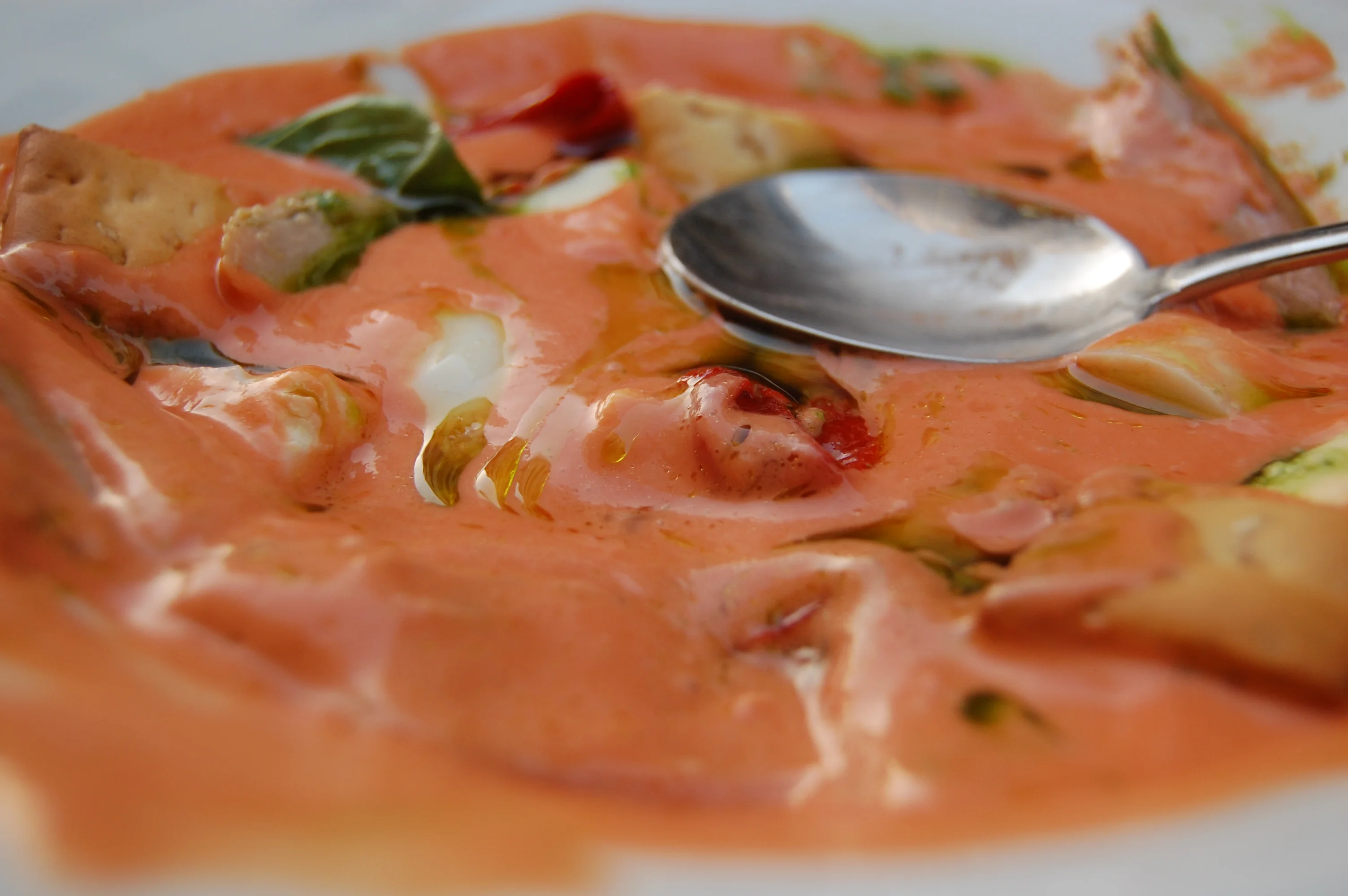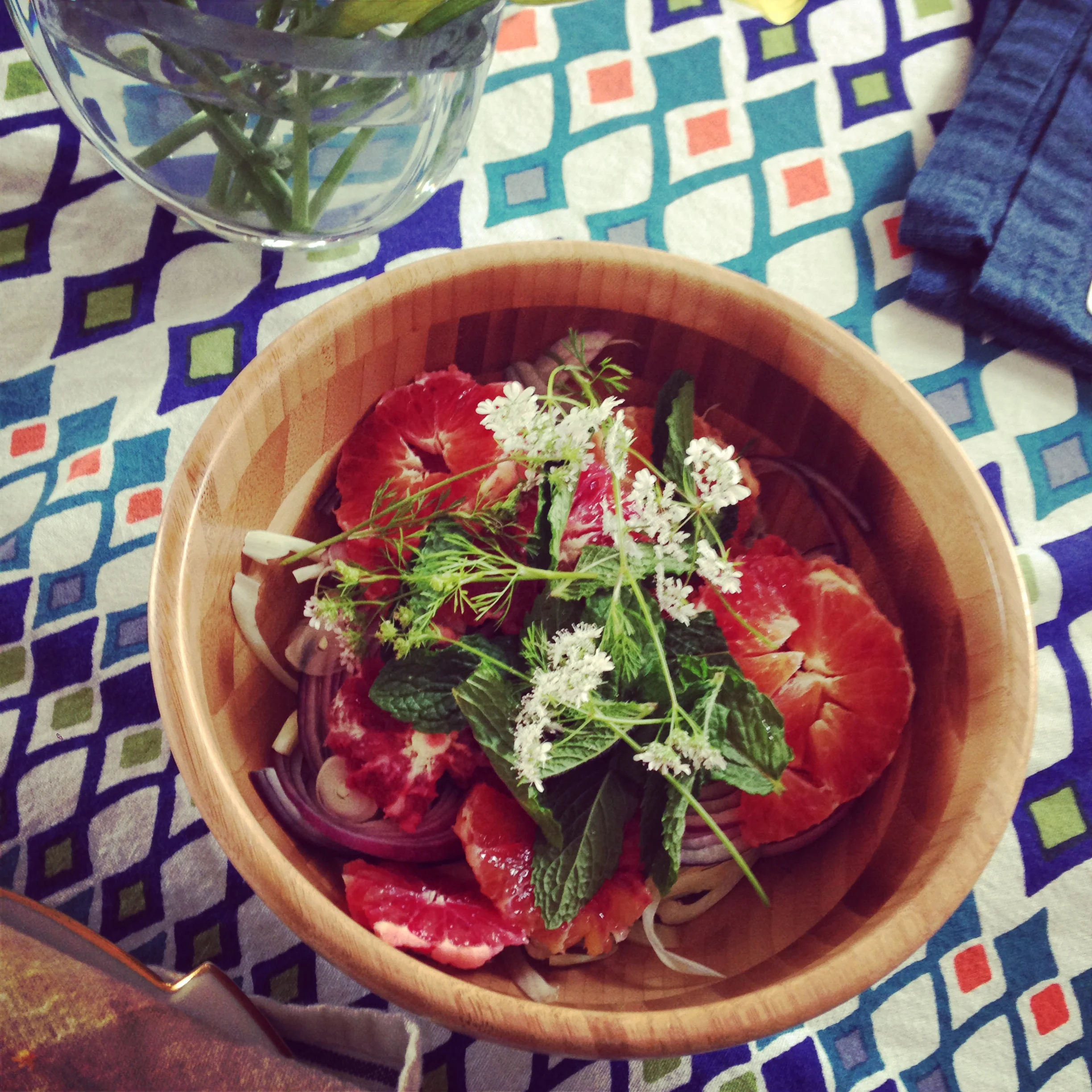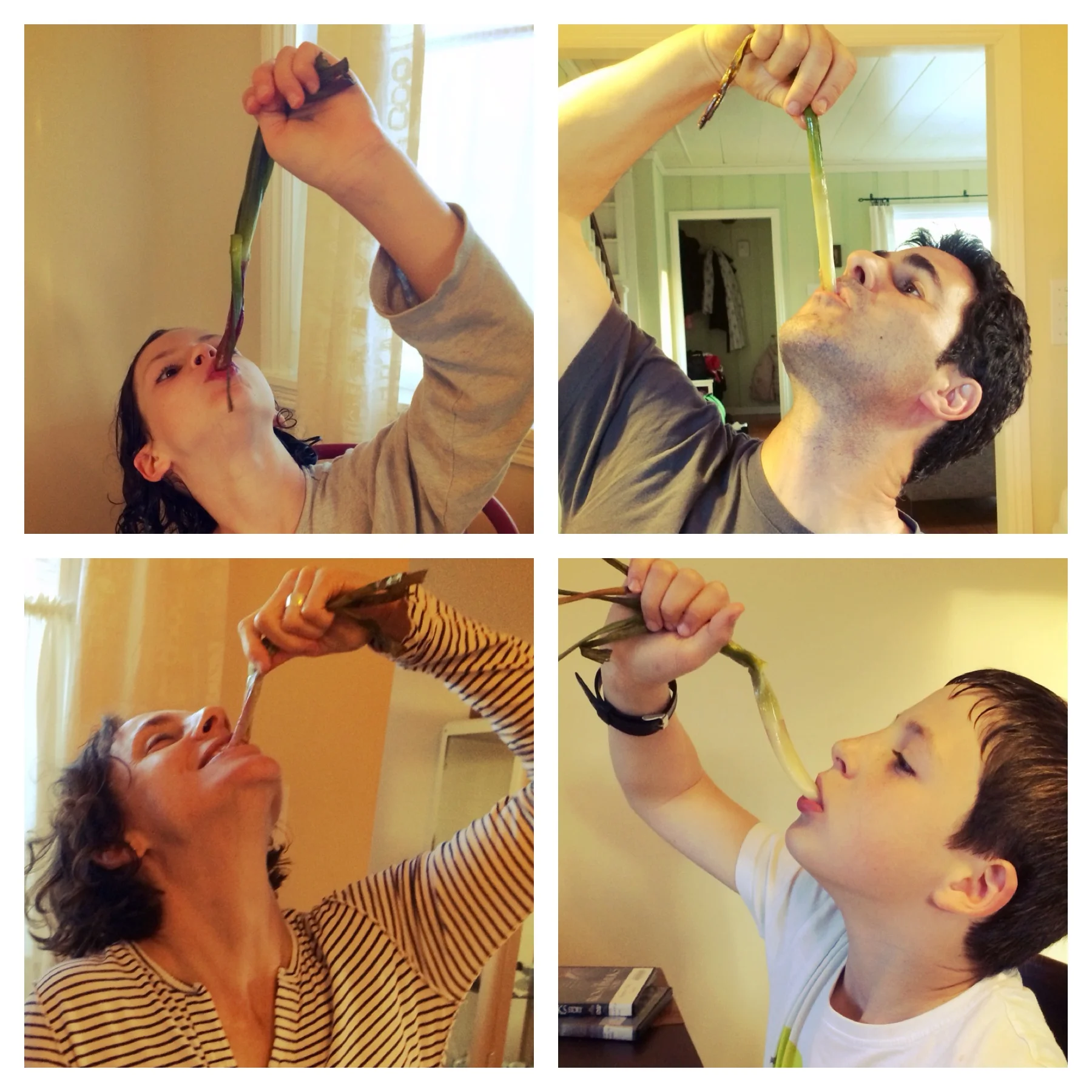Everyone around here knows gazpacho, the (originally tomato-based) cold soup with has infinite variations. Is it fair to even call them gazpacho, though? I've heard of many sweet versions: melon gazpacho, strawberry gazpacho, peach gazpacho, etc. It's as if the term were being used to describe almost any fruit-based (or watery vegetable: there's also a cucumber gazpacho out there) cold soup.
Read MoreTea is, as many of you already know, one of my absolute favorite worldwide things. Or moments, I should say. Before daylight breaks every morning, I purposely and happily wake up in the wee hours, the house still quiet, knowing I have a while to sit, contemplate, and pour myself cup after cup of Gong fu-style infusions. In the summer it's usually a green tea (these days, one called Fragrant Leaf from Peter's shop); in winter a dark roasted Oolong or an earthy Pu-ehr (warning: this might change in the Bay Area, where the coldest months are the summer ones; foggy days go well with more warming teas). Nothing beats the silence of those waking moments, when the evolution of the flavors in the successive infusions of my tea leaves balances the changing light of another oncoming day. Each day it tastes and feels different, and yet the daily ritual is a safeguard, no matter where I am.
Read MoreI've been reading a fascinating book, recommended by one of my teachers at Bauman College, called The Jungle Effect.
Read MoreToday is St. Jordi, my favorite Catalan holiday. Today I miss Barcelona. Some say it's the equivalent of Valentine's Day. Maybe so, only it has a cultural addition, which makes it much more interesting. Roses and books, books and roses.
Read MoreCalçots are a mild, sweet type of onion (though they look a lot like leeks) grown in Valls, the south of Catalunya.
Read MoreThe word tapas comes from the verb tapar, to cover, and the noun tapa, cover or lid. There are many legends that attempt to explain the roots of tapas, although their true origin is unknown. One of these legends claims that tapas were conceived out of a need to cover one's glass to keep the flies out. But were there really more flies in Spain than in other countries? Others state that tapas "cover" one's stomach, i.e. line it with some food, to protect it from the alcohol. (One of the most valuable pieces of advice an old tavernero gave me when I first arrived in Spain in 1998 was "always eat more than you drink and you'll never get drunk".) Yet another legend says that tapas were meant to "cover" the appetites of field workers; they would nibble on something in order to regain their strength to keep working.
Read More




